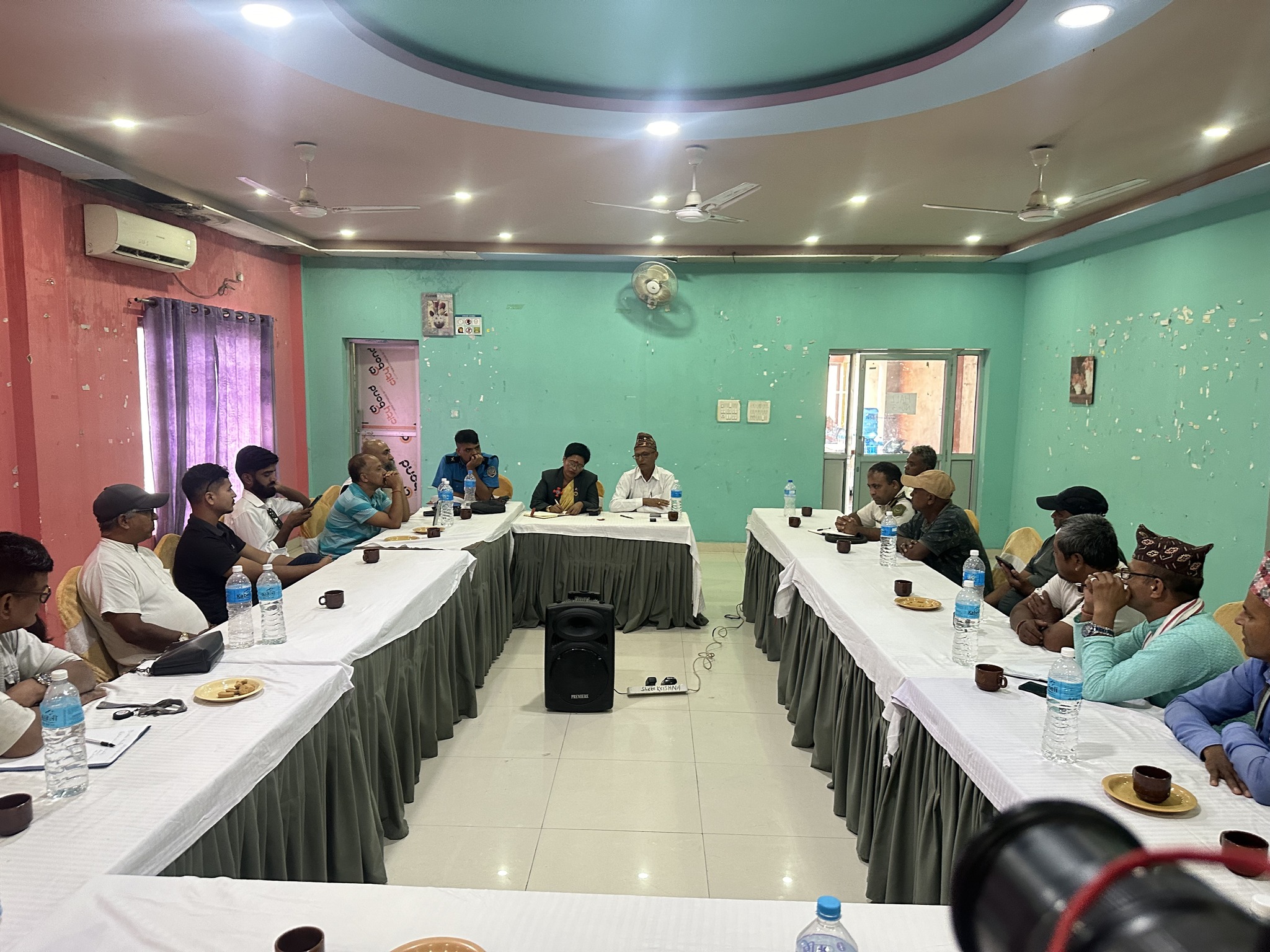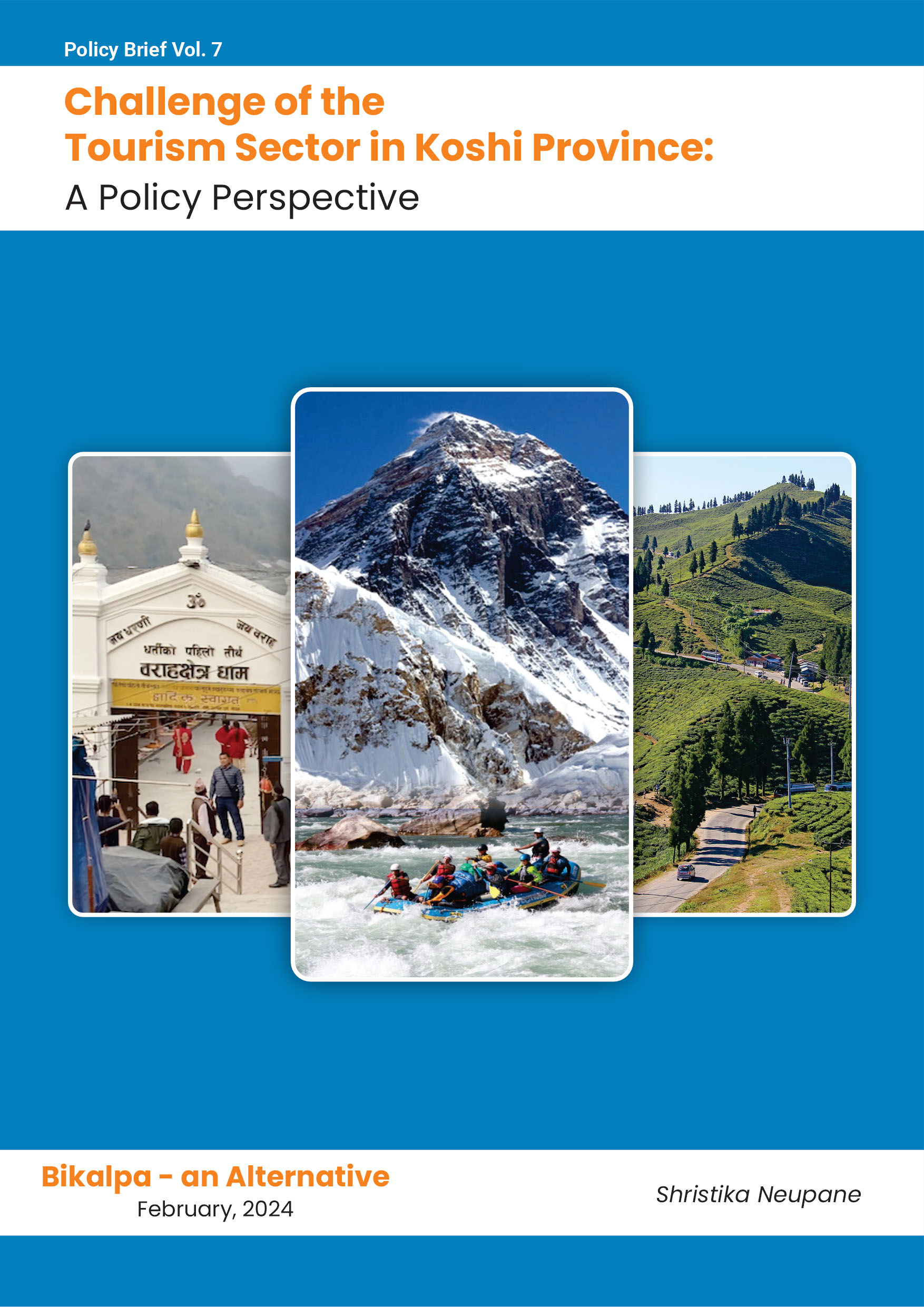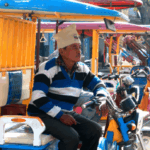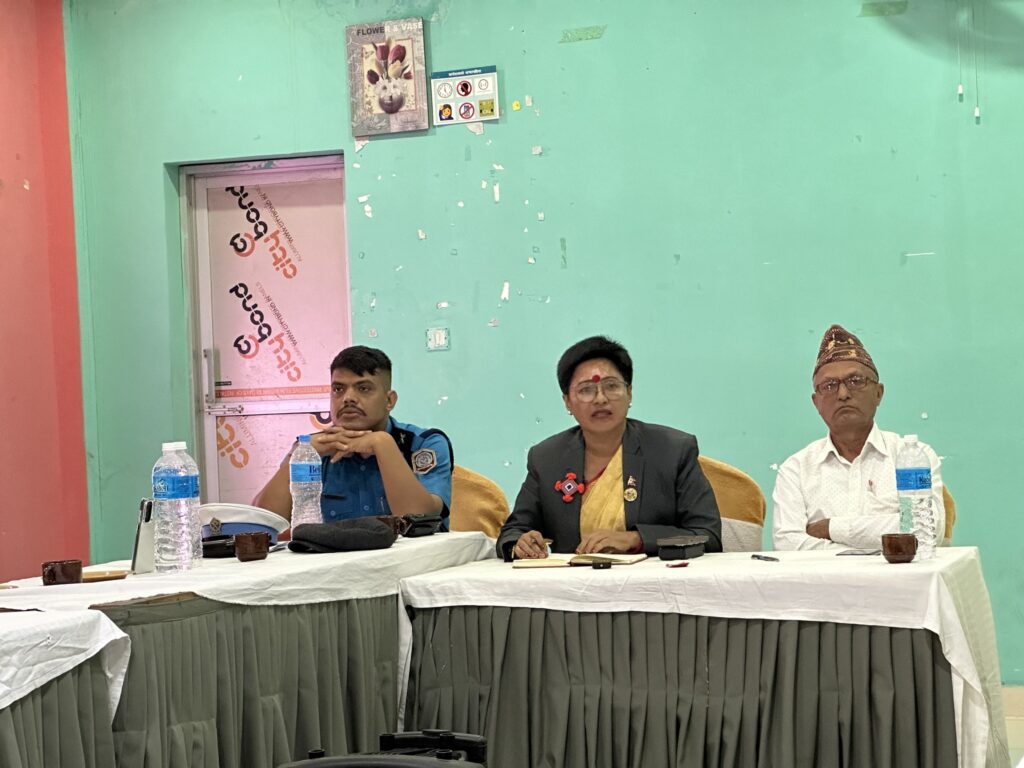
On October 4th, 2024, Bikalpa – an Alternative organized a stakeholder dialogue to discuss the challenges and opportunities related to city rickshaws in Koshi Province. The event brought together policymakers, city rickshaw owners, city rickshaw dealers, traffic officials, Biratnagar Metropolitan officials province officials, social activities, and other stakeholders to address the pressing concerns about the management and livelihood of rickshaw drivers.
The program was chaired by Honourable Mina Shrestha-member of parliament of koshi province. The discussion centered around issues like registration, licensing, insurance, traffic management, and ensuring the rights and dignity of rickshaw drivers while balancing the city’s development needs. City rickshaws are part of the local economy in most of the Terai region of Nepal. Urban cities like Biratnagar have become good marketplaces for city rickshaws. They provide livelihoods for thousands of drivers in these parts where driving a rickshaw is the only major source of income.
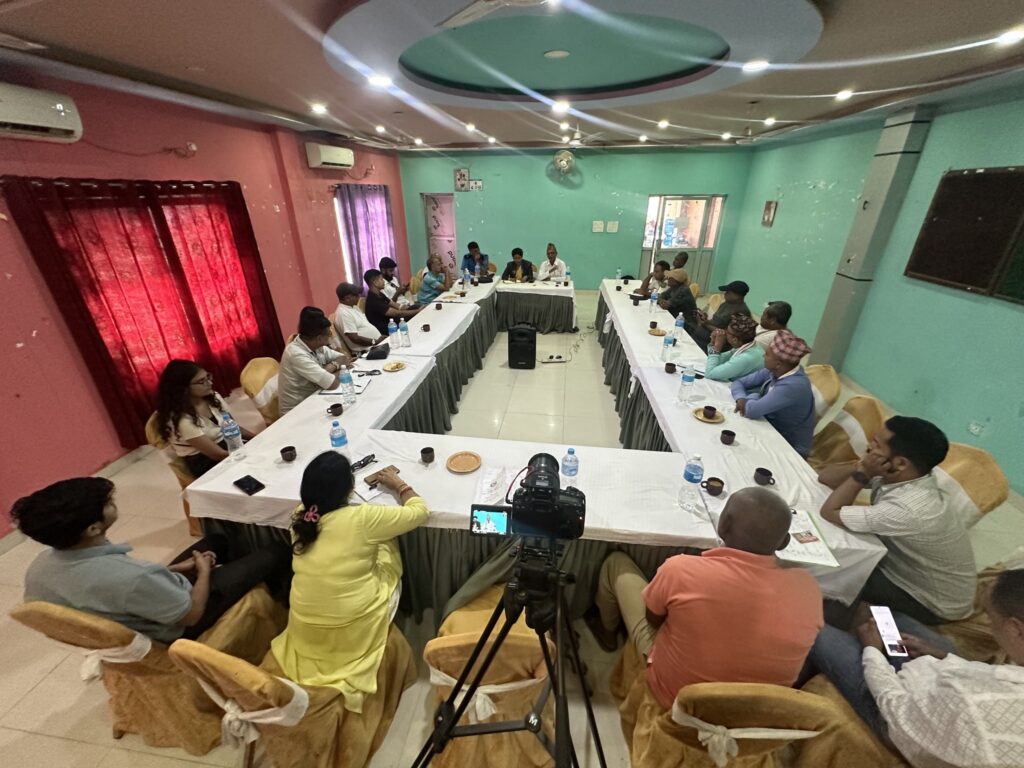
Growth in the electric versions of these city rickshaws has also grown toward lesser fuel dependence and provided inexpensively affordable transportation to millions of residents. With the benefits, however, came new challenges. The general lack of regulation in rickshaw operations led to the general development of many ills regarding city traffic management, registration processes, and maintenance of safety standards. This stakeholder dialogue was
specifically aimed at addressing these issues and laying out a roadmap for more organized
rickshaws.
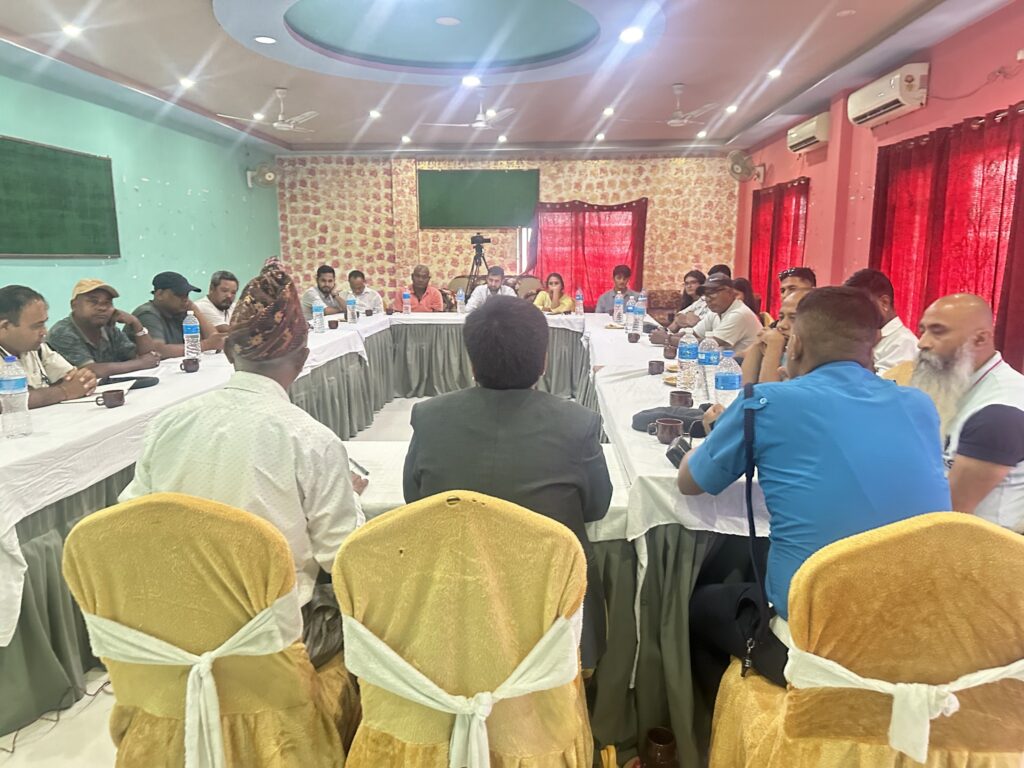
Key Challenges Discussed
Central Issues of Registration, Licensing, and Insurance: Another major issue highlighted in the program was the absence of proper registration and effective licensing. Due to the cumbersome process of seeking a license, most of the rickshaw drivers remain entirely unaware. Additionally, although Biratnagar Metropolitan is calling for city rickshaws registration, many city rickshaws are not coming for registration. Similarly, insurance is another critical issue, as most of the rickshaw drivers are operating their vehicles without coverage.
Livelihood of the Rickshaw Drivers: The participants shared that the livelihood of the low-income earning rickshaw drivers, whose incomes range as low as NPR 500 per day, must be safeguarded. A number of them identified the influx of too many rickshaws in the city have reduced income opportunities. Some mentioned that rickshaw drivers also face a lack of respect despite being an important part of the transport architecture of the city.
Regulatory Challenges: Discussions by the speakers revealed that the policies related to operational aspects of rickshaws in Koshi Province remain incomplete. While guidelines have been drafted by municipalities, their enforcement remains sporadic. The discussion also covered the imperative need for local governments to simplify the registration process and ensure that all rickshaw operators meet at least the minimum requirements on safety issues.
Rickshaw management and urban planning: City rickshaws are required to be integrated into larger urban planning about traffic management and infrastructure building. Highways, for instance, do allow rickshaws on them in the present era, traffic police points out that ‘C’ lane are separated for the cityrickshaw, which would help decongest the traffic and ensure a better flow of transport, which still create a problem traffic contest .
Respect for Rickshaw Owners: Many mentioned that city rickshaws got no respect, and even in their business, they get discriminated against. The discussion highlighted the need to acknowledge such people as business persons and to give them their due rights and
recognition, just like other businesspeople.
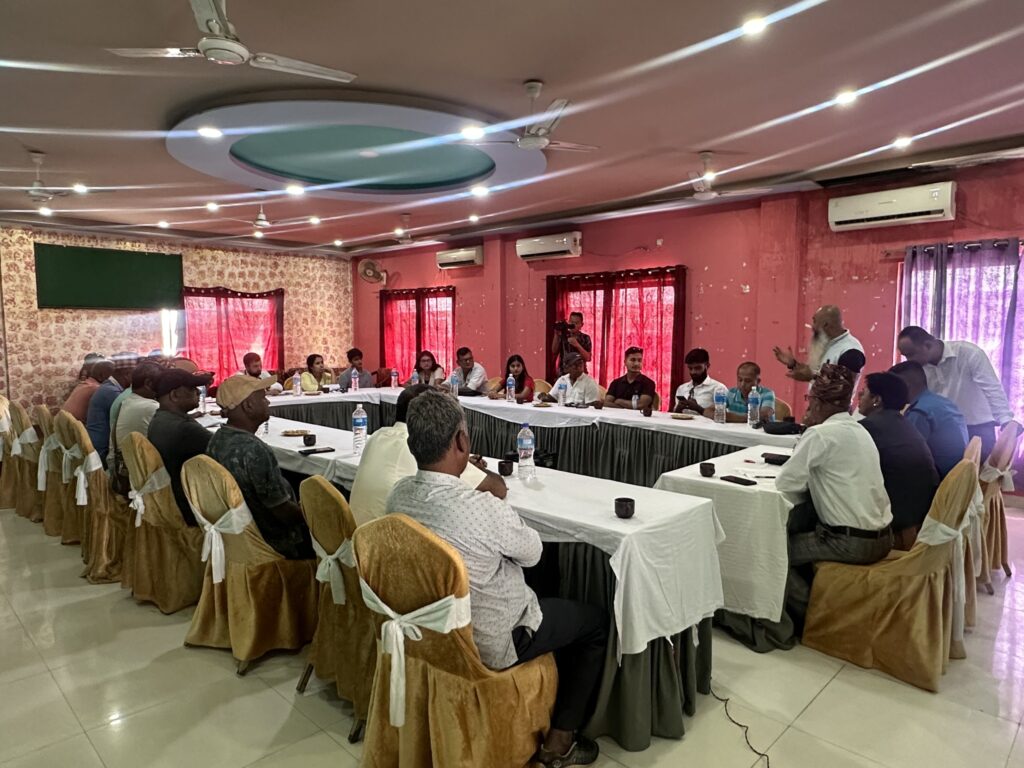
Key Recommendations from Discussion
Facilitate process of licensing: The stakeholders felt that licensing should be simplified to overcome the widespread problem of unlicensed rickshaw drivers by eliminating cumbersome written tests and offering practical alternatives in view of the educational background of the
drivers.
Registration and Insurance: It was also recommended that all rickshaws get registered and the drivers get them insured, providing a safety net in case of a mishap for both drivers and passengers alike, as well as regulating the number of rickshaws plying within the city limits. The program demanded a better infrastructure answering to the needs of rickshaw drivers with decent parking space, rest stops with water/toilet, main stops with better facilities.
Traffic Management and Enforcement: The stakeholders demanded strict enforcement of traffic rules for all categories of vehicles, including city rickshaws. It was recommended that the traffic authorities shift from punitive measures to facilitative approach in order to help in ensuring compliance instead of fines collections.
Increasing Respect towards Rickshaw Drivers: The deductions that were made concluding increased respect and dignity accorded to rickshaw drivers-that they are thought of as important workers within the transportation arena, and as such, are given reasonable treatment both by the public and the law.The stakeholder dialogue culminated with the concerted effort from the three local governments, business associations, and city rickshaw driver unions to work towards addressing the issues. Long-term solutions that could balance interests of rickshaw drivers, city planners, and the general public-that is what honorable Mina Shrestha, program chair clichéd.
Through such group discussions, Bikalpa-an Alternative continues to accord a platform for meaningful discussion on public policy concerns molding the daily livelihoods of residents in Koshi Province. The lessons learned from this event are most likely to be instrumental in future
policy reform and bring order into the management of the rickshaw system in the city, playing an
important role in urban mobility-organized, efficient, and inclusive.

